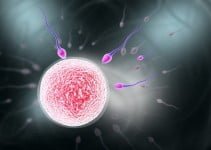Nutrition plays an important part in your baby’s development. Whatever you put into your mouth is also what nourishes your unborn child. If there’s any time to be conscious about what food you consume, this is one of those times.
Keep in mind that you are feeding one or more people and that they need to get enough vitamins and minerals while still in your womb so they can keep up once they enter the real world.
Then again, one of the biggest problems about being pregnant is the plethora of advice you get from people you know and don’t know. The amount of information thrown at you is enough to confuse you.
So do you have to give up your favorite food for the duration of your pregnancy? Or is it all right to balance everything out? This guide can help you.
Foods that Pregnant Women Should Eat

Being pregnant doesn’t mean you should give up on pizza or some sinful delights. However, it’s recommended to watch what you eat since you’re eating for another person as well. In general, your pregnancy diet should be comprised of the following food items:
- bread and cereals (preferably whole grain)
- fruits and vegetables
- milk or milk products that are non-fat or low-fat
- extra-lean meats
- skinless chicken
- fish
- dried beans and peas (cooked)
- water (lots of it; eight glasses for measure)
While that forms a general guide, also remember that you might not be able to eat a certain kind of food from the list above.
For example, there are lots of varieties of fish, but there are certain types you shouldn’t consume a lot of while pregnant, and this will be tacked in the section on foods to avoid.
What your diet will comprise also depends on how your pregnancy is going. For example, if you suffer from morning sickness, especially during your first trimester, a good meal plan might be eating a snack for breakfast and then opting for a heavy dinner.
On the other hand, you might want to have a large breakfast and light dinner during your last trimester if heartburn is an issue.
Important Nutrients
There are four important nutrients for pregnant women: calcium, folic acid, iron, and protein. Here are the food items where you can find these nutrients:
- Calcium. This is important in building your baby’s bones and teeth. Food sources for this nutrient include cheese, leafy greens, milk, yogurt, sardines, salmon with bones, and juices and food fortified with calcium.
- Folic acid. This helps prevent birth defects in the brain and spine of your baby. While leafy greens, enriched cereals, bread, and pasta are good sources of folate, it might not be enough for the needs of a pregnant woman. As such, some doctors will recommend a vitamin supplement.
- Iron. This is essential in the creation of blood in order to supply your baby with oxygen. Also, pregnant women who don’t get enough iron are prone to anemia, which leads to fatigue as well as a greater risk for infections. Good sources of iron include fish, poultry, dried beans and peas, cereal fortified with iron, and meat.
- Protein. This helps with the building of your baby’s important organs. Nuts, tofu, fish, poultry, meat, eggs, and dried beans and peas are ideal protein food sources.
Important Food Groups
These are the important food groups for a pregnant women’s diet:
- Fruits and vegetables. The second and third trimesters are important milestones in your baby’s development, so upping your intake of these foods is necessary.
- Lean protein. Sources for these are eggs, fish, beans, tofu, cheese, milk, nuts, poultry, beans, and meat. In case you’re craving deli meat, make sure to heat it to kill bacteria. For cheese, go for the soft variety, such as feta, Brie or Gorgonzola but make sure they are made from pasteurized milk.
- Whole grains. Apart from being a source of energy while pregnant, these also provide B-vitamins, iron, and fiber. At least half of the carbohydrate intake of an expectant mother should come from this food group. Sources include bread, brown rice, oatmeal, and whole-wheat pasta.
- Dairy. These are good sources for calcium, vitamin D and protein.
Foods to take in moderation

Coffee has become so much part of our culture that may be the thought of abandoning it for nine months is a difficult habit to curb. Studies have shown that it doesn’t do harm if taken moderately.
Bacon and sausage may be delicious, but they are rich in nitrate, which has been linked to brain tumors and diabetes. It’s sensible to limit your intake of these while expecting a child.
Foods that Pregnant Women Should Avoid

While there are certain foods pregnant women can take in moderation while carrying a child, there are some that are completely off limits. These include:
- Certain types of fish. Fish is good given omega-3 aids with the brain development of your unborn child. However, varieties such as shark, tilefish, and swordfish are heavy on methyl-mercury, which is bad for your child’s nervous system.
- Raw eggs. Cooked eggs are fine, but anything half-cooked should be avoided, as they can be sources of salmonella.
- Alcohol. While it’s true that there is no clear consensus regarding the consumption of alcohol during pregnancy, it’s best to stay away from it. Some doctors do allow expectant mothers to down a few ounces a week, but avoiding it might still be best.
The list of foods that pregnant women should and shouldn’t stay away from will grow and shrink based on studies and research. This is why it’s important to keep up to date on that information through reliable sources.
Even better, if you read an article that gives you pause for concern, consult your doctor immediately, as they can help make sure you’re getting the right nutrition.
The Keto Diet
Let’s consider one diet, in particular, the Keto Diet, and see what the ramifications are for continuing that while pregnant.
The ketogenic diet has been called many things from the low carb to LCHF (low carb high fat) diet, in which your liver produces ketones that are used by the body for energy.[1]
Through this diet, you are restricting carbs and increasing fats in order to lose weight.
Those who go on this diet are going to lose weight, control their blood sugar, increase their energy, focus better, and help regulate their cholesterol and blood pressure among other benefits.[2]
There is apparently no calorie counting while on this diet which means that you don’t really know how much you are taking in during the course of a day unless you log that information.
Some of the things that you are not supposed to eat while on the Keto diet would be grains, sugar, fruits, and tubers (potatoes).
Some of the foods that are allowed are meat, leafy greens, above ground vegetables, high-fat dairy, nuts and seeds, avocados and berries, and added fats.[3]
Is It Safe?
It depends on how you use it. If you are using it for weight loss, that’s not appropriate while pregnant. Pregnancy is not the time to try and lose weight.
The answer to its safety is still controversial. Research indicates that the keto diet is associated with congenital abnormalities, organ dysfunction, and behavioral changes in later life. [4]
Some dietarians still recommend keto diet during pregnancy by optimizing the number of carbs and fats you take. They’ll calculate your body requirements for energy and give you a personalized plan for the keto diet. [5]
So, you should consult your doctor if you’re planning on starting a keto diet during pregnancy. Just don’t do it on your own.
Bottom Line
There really have been no studies that show whether the keto diet is or is not inherently safe for a pregnant woman and the fetus.[6]
So back to the bottom line; if you do the ketogenic diet while you are pregnant make sure you are eating well, whole foods, and not starving yourself. And also follow your doctor’s advice as well.
As long as the baby is forming and growing correctly, then you should be good to go.
However, it is again, a personal preference and deals with what you and your doctor feel comfortable with.
References



